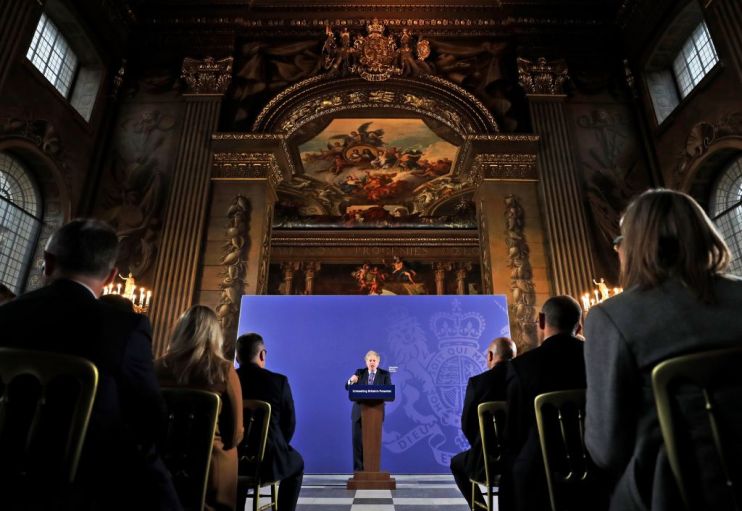Champion of free trade? Prime Minister Boris Johnson must match rhetoric with action

For believers in free trade, Boris Johnson’s speech in the Painted Hall on Monday was, in many ways, highly encouraging.
The Prime Minister emphasised the role that free trade has played in lifting some of the poorest people on the planet out of poverty, name-checked Adam Smith and his invisible hand of the market, and deplored the fact that “mercantilists are everywhere” as he criticised both tariff and non-tariff barriers to trade.
What’s more, the symbolism of delivering his speech from the Old Royal Naval College could not have been clearer: trading with countries across the world is what has contributed to the UK’s wealth and prosperity.
The Prime Minister is absolutely right. Thanks to Britain’s rich history of abolishing protectionist measures such as the Corn Laws and pursuing trade with other countries, our nation has prospered. And we are not alone. Tens of millions of people have seen their lives improved in a way that is unprecedented in human history, as their governments embraced the principles of free trade over the past few decades.
But the world is changing. Today, with Donald Trump taking an increasingly isolationist approach to US foreign policy and other countries retreating from the globalist outlook, it is vitally important that the UK steps up to champion the case for free trade.
I do not doubt that Johnson is enthusiastic about using the opportunity presented by Brexit to forge an independent, outward-looking trade policy. However, if he is not careful on other fronts, he could risk undermining his globalist instincts.
Take the negotiations with the EU. These will no doubt be complex and politically charged (they already are), but Johnson would do well to not focus too hard on newspaper headlines about the need to be tough with the EU, and instead recognise that a free trade agreement with our European partners is mutually beneficial.
The main prize of Brexit is the opportunity to forge partnerships with the rest of the world, including emerging markets, but it would be foolish to forget that the EU is still our biggest trading partner. And no matter how many other exciting trade deals the government strikes with countries around the globe, remember that distance still matters when it comes to trade — and so it would be wrong to turn our backs on the EU.
The Prime Minister’s comments during the election were also a red flag. He promised to introduce new state aid rules which would allow our government to support failing UK industries.
While this might appeal many of the people who voted for the Conservatives for the first time in December, it would be a mistake.
Using taxpayers’ money to bail out unprofitable industries, or implementing tariffs which would tax imports, would be incredibly damaging — to British consumers, and to the economy. It would deprive the UK of enjoying the benefits of free trade: goods and services would become more expensive, economic growth would stagnate, and those on the lowest incomes would suffer the most.
Finally, there is immigration. Unfortunately, it looks as though freedom of movement between the EU and the UK will come to an end. This is disappointing. Immigration is not just a good thing in itself, injecting energetic and talented workers into the UK labour market — it also helps to boost trade between countries.
As such, if the government is set on reducing the numbers of EU migrants, it should aim to introduce freedom of movement between the UK and Australia, Canada, and New Zealand. This could then be expanded to other countries.
Free trade is great, and the Prime Minister is right to say that this country should champion it. However, he should ensure that he doesn’t find himself inadvertently implementing policies which would undermine it.
Sign up to City A.M.’s Midday Update newsletter, delivered to your inbox every lunchtime
Main image credit: Getty
